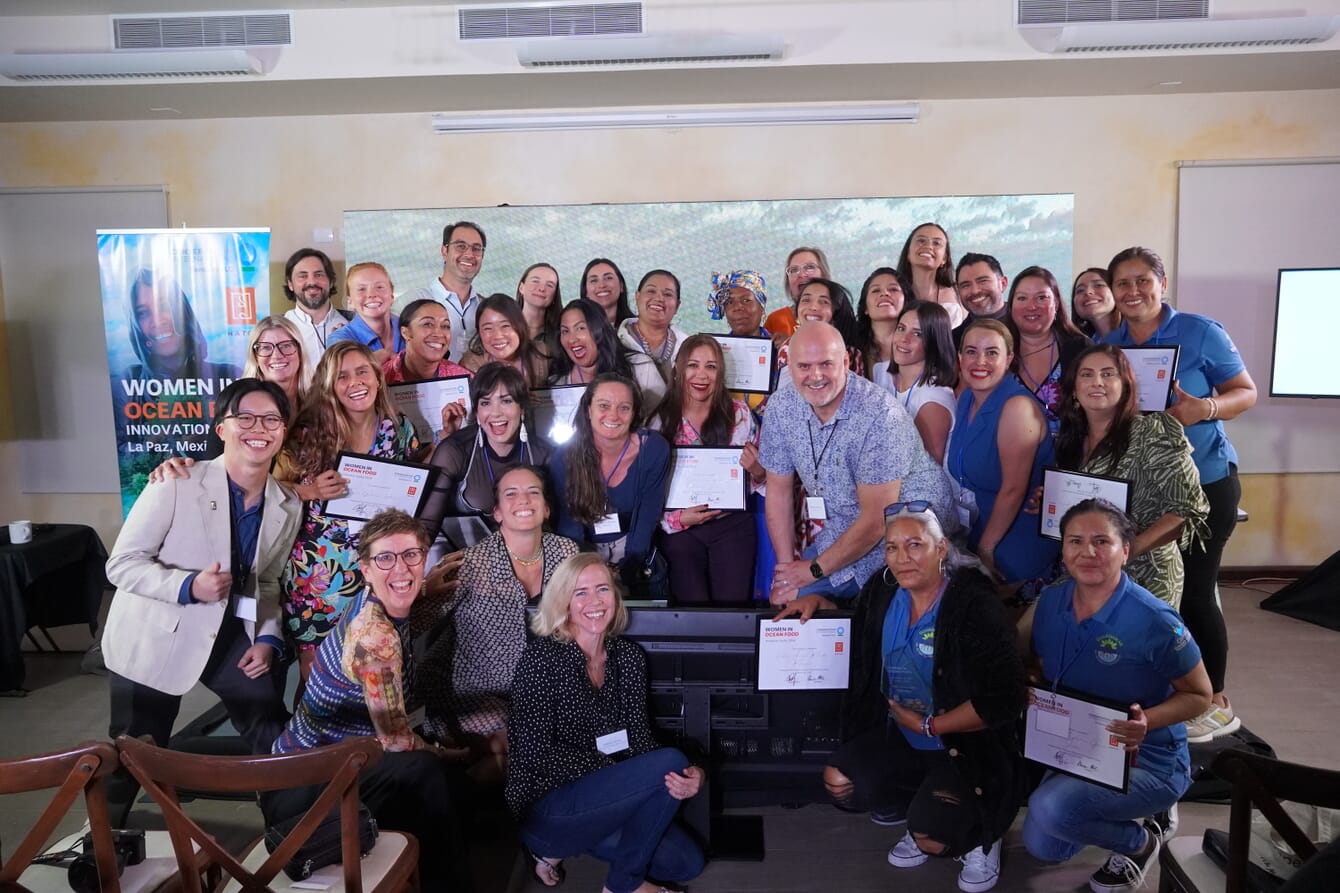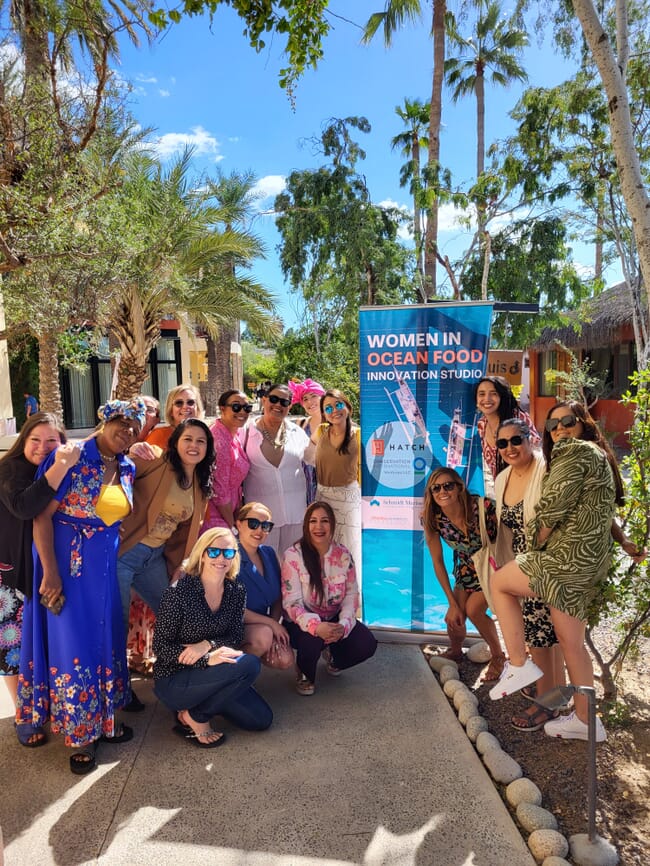
© Hatch Blue
Called the Women in Ocean Food Innovation Studio, it was organised by ASC, in partnership with Conservation International (CI) Ventures and Hatch Blue. It involved an all-female cohort, who gathered in La Paz, Mexico to showcase their innovative ideas in promoting blue food communities and local food systems.
Thirteen female-led companies from all over Latin America were featured in the studio, which took place in January. Participants presented and developed their business ideas in an intense two-week mentorship and networking programme. They were given support to build their business models, improve their pitching skills, validate opportunities in their markets and grow their networks across the blue economy.
Participants have been paired with industry leaders and introduced to dedicated venture philanthropists and impact investors. There is also the potential for companies to attract follow-on investment from Hatch and CI Ventures.
Wendy Banta, head of supply chain assurance at ASC, attended the event to talk about the role and benefits of responsible aquaculture across the supply chain.
Speaking about her experience at the event, Banta said: “Engaging with driven, capable women who are transforming aquaculture and other ocean food industries was insightful and inspirational. ASC can help empower them to include environmental and social responsibility in their business models for sustainable growth and development by providing the knowledge, support and network to achieve responsible aquaculture.”
Reflecting on the community day event in La Paz, which marked the programme’s finale, Wayne Murphy, Hatch co-founder and partner, said: “It was truly a privilege to be part of such a globally unique event. Standing room only for an engaged audience which witnessed only female speakers – entrepreneurs, investors, industry and government representatives – on stage. Increased inclusion and diversity in the blue economy are vital to the future of the industry and exciting events like this, showcasing amazing female talent and experience, need to be the rule rather than the exception.”

The next studio is due to take place in sub-Saharan Africa in 2025. © Hatch Blue
From biotechnology, to genetics, to health and supply chain, the topics covered during the sessions were rich and diverse.
A wide range of participants
Participants in the initiative included Organización de Pescadores Rescatando la Ensenada (OPRE), an all-female oyster farming cooperative based in Mexico, which uses suspended sacks as their main cultivation method and won the prize for the best pitch during the event.
Meanwhile, Tres Peces Pescadería has established Chile’s first mobile fishmonger, which connects fishermen directly to the market, and Chilean company Aquit is developing a preventive treatment that is designed to replace antibiotics, improve survival rates, and boost natural immunity in farmed fish after only seven days of inclusion in their feeds.
Seaweed was also a focal point for many of the innovators. Brazil-based Phycolabs uses seaweed as an alternative to petrochemical products, to create textiles and materials. Community-based Belize Women’s Seaweed Farmers Association uses submerged farming techniques and actively supports its members in the development and marketing of value-added seaweed products through branding, microenterprises and collaborative initiatives. Mexico and Norway-based startup Thalasso builds container-based micro-biorefineries to extract high value ingredients and create products from Sargassum seaweed, which is negatively impacting coastlines around the world, to create beneficial and commercial products.
Following the event Diana Allerbon, Aquit’s CEO, reflected: "It was a very unique programme with insightful information and amazing speakers and mentors. A tight collaborative spirit arose among all the teams, and the bonds that were built will surely help us all through this exciting but difficult process of growing a startup. Furthermore, it was a privilege to know about the background of ASC certification standards, systems and tools, which are critical to promote the reduction of antibiotic use in aquaculture, which is one of Aquit's main goals.”
The Latin American programme comes three years after the inaugural Women in Ocean Food Innovation Studio, which took place in 2021 and was followed by a second programme, focused on South East Asia, in 2022. The next studio (2025) plans to focus on women-led blue economy businesses in sub-Saharan Africa.




